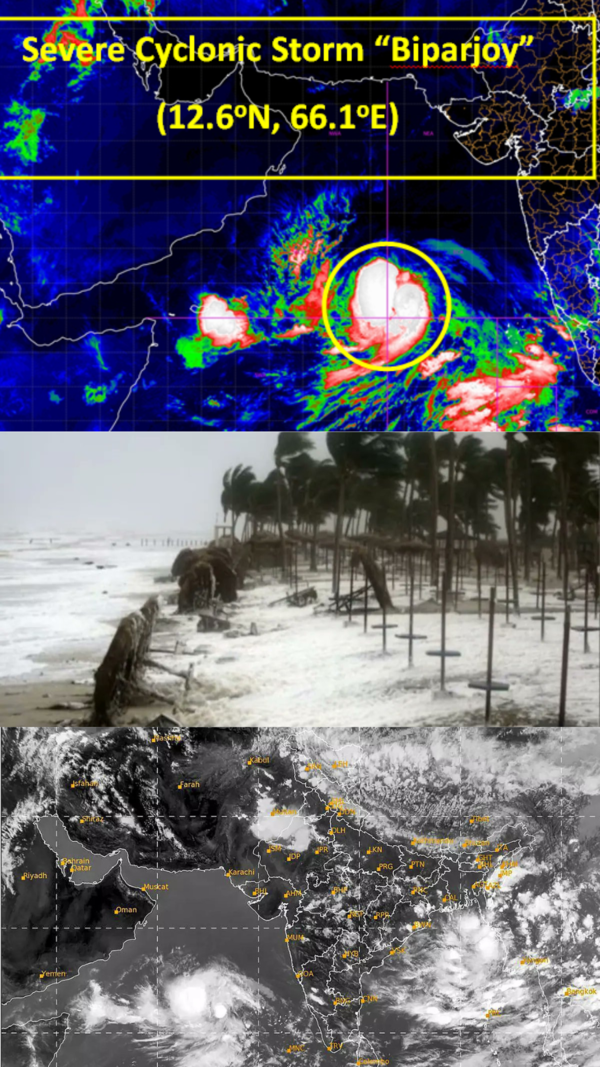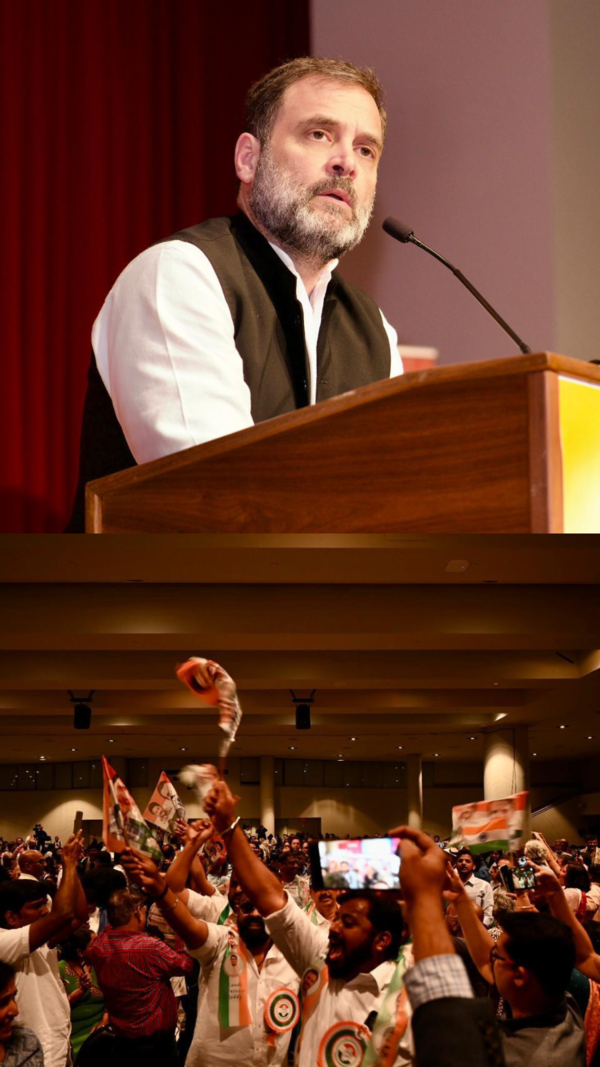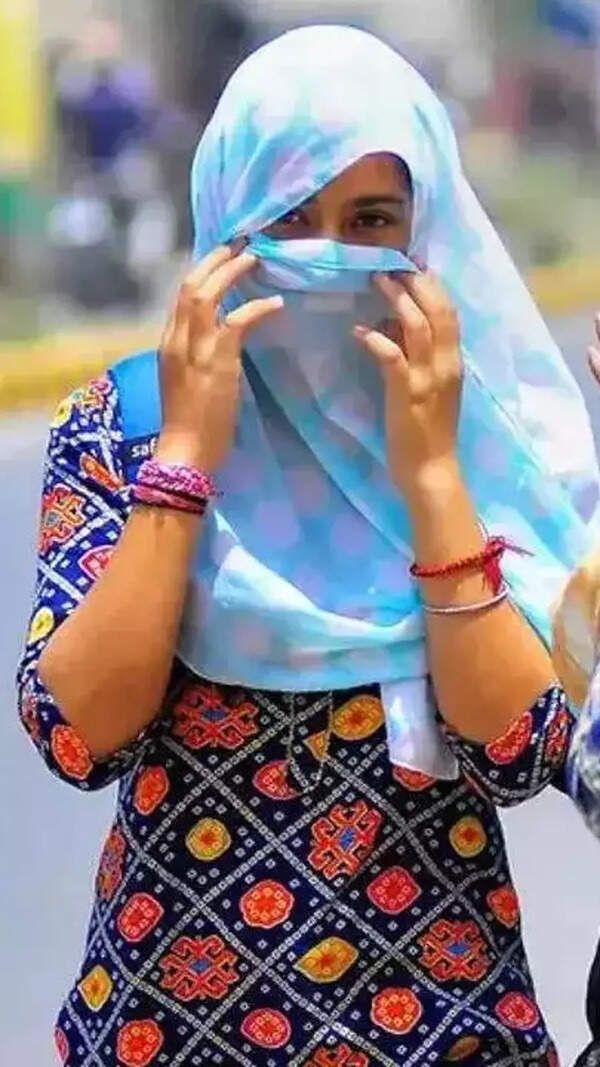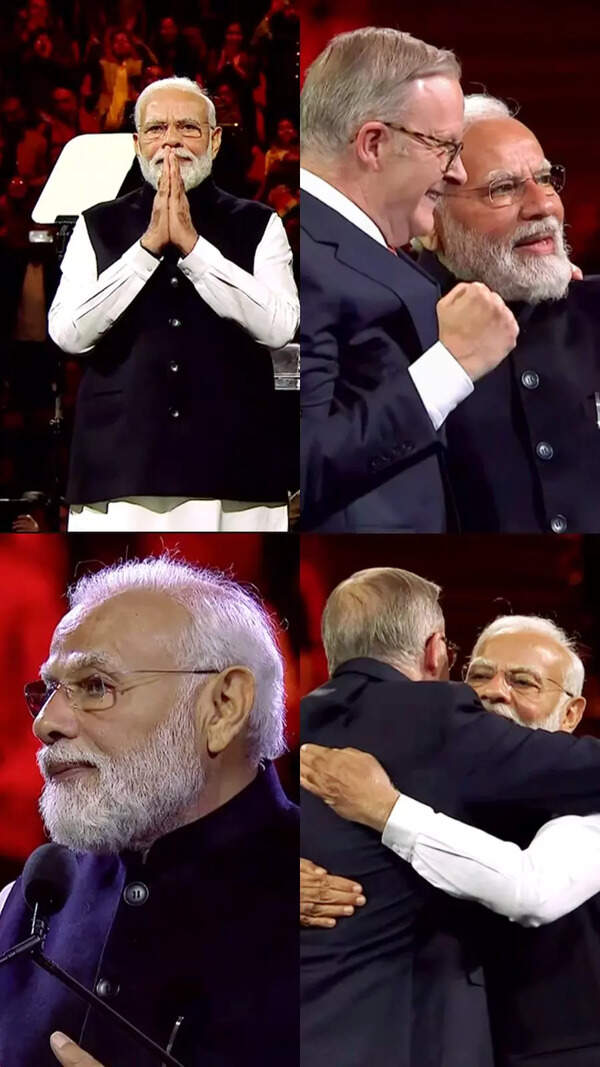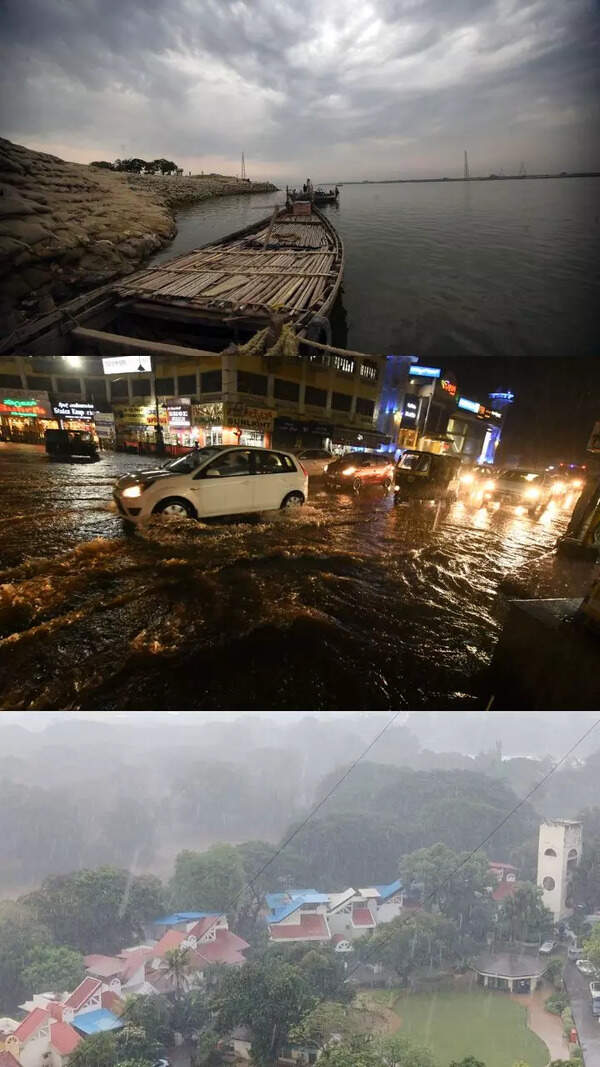- News
- India News
- Modi asks G20 to study India's 'Aspirational District' model of development
Trending
Modi asks G20 to study India's 'Aspirational District' model of development
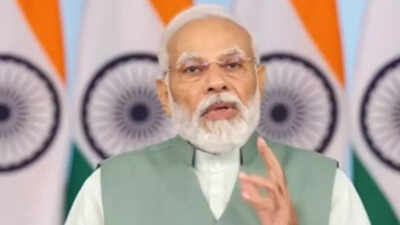
VARANASI: Prime Minister Narendra Modi asked G20 members to study the India's 'Aspirational District' model of development.
While addressing inaugural session of G20 Development Ministers meeting, which took place at Deen Dayal Upadhyaya Trade Facilitation Centre, through video message on Monday morning Modi said, "We have made efforts to improve people's lives in more than a hundred Aspirational Districts which were pockets of under-development. These Aspirational Districts have now emerged as the catalysts of growth in the country."
He urged the G20 Development Ministers to study this model of development. “It may be relevant as you work towards accelerating Agenda 2030”, he added.
“Development is a core issue for the Global South”, he said pointing out that the countries of the Global South were severely impacted by the disruptions created due to the global Covid pandemic while geo-political tensions were responsible for food, fuel, and fertilizer crises. In such circumstances, he continued, the decisions you make are significant for humanity as a whole.
Modi emphasized that it is the collective responsibility of the people to not let the Sustainable Development Goals fall behind. He further added that the Global South must send a strong message to the world about the action plan required to achieve this.
Modi said, "Our efforts must be comprehensive, inclusive, fair, and sustainable, and attempts should be made to increase investment in fulfilling the SDGs and also finding solutions to address the debt risks faced by many countries." He said that multilateral financial institutions should be reformed to expand the eligibility criteria to ensure that finance is accessible to those in need.
Addressing the issue of the growing data divide, Modi said that high-quality data is critical for meaningful policy-making, efficient resource allocation, and effective public service delivery. He said that the democratization of technology is a crucial tool to help bridge the data divide. In India, the Prime Minister elaborated, digitalization has brought about a revolutionary change where technology is being used as a tool to empower people, make data accessible, and ensure inclusivity.
He said that India is willing to share its experience with partner countries and expressed hope that discussions will result in tangible actions to promote data for discourse, development and delivery in developing countries.
“In India, we hold great respect for rivers, trees, mountains, and all elements of nature”, he said, as he threw light on the traditional Indian thought which promotes a pro-planet lifestyle. Last year, along with the UN Secretary-General, Modi recalled, launching Mission LiFE and expressed happiness that this group is working to develop a set of High-Level Principles. “This would be a significant contribution to climate action”, he added.
Speaking on the importance of gender equality and women empowerment in achieving the SDGs, he mentioned that India is not limited to women empowerment but extends to women-led development. Modi underlined that women are setting the agenda for development and are also the agents of growth and change. He urged everyone to adopt a game-changing Action Plan for Women-led Development.
Highlighting the significance of Kashi, he said that it has been the center of knowledge, discussion, debate, culture, and spirituality for centuries while it also has the essence of India's diverse heritage serving as a convergence point for people from all parts of the country. Modi expressed delight that the G20 Development agenda has reached Kashi as well.
Before concluding his address, Modi said that the spirit of Kashi is energized by India's timeless traditions. He also urged the dignitaries to not spend all their time in meeting rooms and encouraged them to explore and experience the spirit of Kashi. “I am confident that experiencing the Ganga Aarti and visiting Sarnath will inspire you to achieve your desired results”, he added.
While addressing inaugural session of G20 Development Ministers meeting, which took place at Deen Dayal Upadhyaya Trade Facilitation Centre, through video message on Monday morning Modi said, "We have made efforts to improve people's lives in more than a hundred Aspirational Districts which were pockets of under-development. These Aspirational Districts have now emerged as the catalysts of growth in the country."
He urged the G20 Development Ministers to study this model of development. “It may be relevant as you work towards accelerating Agenda 2030”, he added.
“Development is a core issue for the Global South”, he said pointing out that the countries of the Global South were severely impacted by the disruptions created due to the global Covid pandemic while geo-political tensions were responsible for food, fuel, and fertilizer crises. In such circumstances, he continued, the decisions you make are significant for humanity as a whole.
Modi emphasized that it is the collective responsibility of the people to not let the Sustainable Development Goals fall behind. He further added that the Global South must send a strong message to the world about the action plan required to achieve this.
Modi said, "Our efforts must be comprehensive, inclusive, fair, and sustainable, and attempts should be made to increase investment in fulfilling the SDGs and also finding solutions to address the debt risks faced by many countries." He said that multilateral financial institutions should be reformed to expand the eligibility criteria to ensure that finance is accessible to those in need.
Addressing the issue of the growing data divide, Modi said that high-quality data is critical for meaningful policy-making, efficient resource allocation, and effective public service delivery. He said that the democratization of technology is a crucial tool to help bridge the data divide. In India, the Prime Minister elaborated, digitalization has brought about a revolutionary change where technology is being used as a tool to empower people, make data accessible, and ensure inclusivity.
He said that India is willing to share its experience with partner countries and expressed hope that discussions will result in tangible actions to promote data for discourse, development and delivery in developing countries.
“In India, we hold great respect for rivers, trees, mountains, and all elements of nature”, he said, as he threw light on the traditional Indian thought which promotes a pro-planet lifestyle. Last year, along with the UN Secretary-General, Modi recalled, launching Mission LiFE and expressed happiness that this group is working to develop a set of High-Level Principles. “This would be a significant contribution to climate action”, he added.
Speaking on the importance of gender equality and women empowerment in achieving the SDGs, he mentioned that India is not limited to women empowerment but extends to women-led development. Modi underlined that women are setting the agenda for development and are also the agents of growth and change. He urged everyone to adopt a game-changing Action Plan for Women-led Development.
Highlighting the significance of Kashi, he said that it has been the center of knowledge, discussion, debate, culture, and spirituality for centuries while it also has the essence of India's diverse heritage serving as a convergence point for people from all parts of the country. Modi expressed delight that the G20 Development agenda has reached Kashi as well.
Before concluding his address, Modi said that the spirit of Kashi is energized by India's timeless traditions. He also urged the dignitaries to not spend all their time in meeting rooms and encouraged them to explore and experience the spirit of Kashi. “I am confident that experiencing the Ganga Aarti and visiting Sarnath will inspire you to achieve your desired results”, he added.
Start a Conversation
FOLLOW US ON SOCIAL MEDIA
FacebookTwitterInstagramKOO APPYOUTUBE

